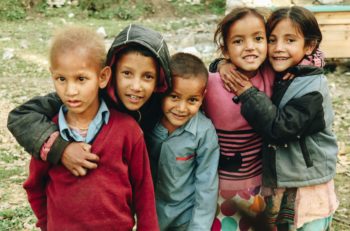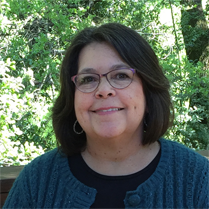 Talking to Children After a Disaster
Talking to Children After a Disaster
Children are experiencing natural disasters such as fires and floods or manmade disasters such as shootings and bombings. Some children personally experience these disasters. Others experience them through watching them on TV, or by hearing adults talk about them. It is important for parents and teachers to be ready to provide support in case stress reactions begin to occur as a result of this exposure.
How to Help
Children need reassurance when they are going through a traumatic time. Very young children need cuddling as well as verbal support. Parents should answer children’s questions honestly without dwelling on frightening details. Talk of the disaster should not dominate conversation at home or at school. Encourage children of all ages to express their emotions through conversations, drawing or painting.
Try to maintain normal routines at home and at school. Expect that children may not perform academically at the same level and may have difficulty concentrating. It may help to substitute less demanding responsibilities temporarily for children.
Finally, acknowledge that you too may have reactions connected with the disaster. Make sure you are taking care of your own physical and emotional needs.
Tips for Talking to Children
- Provide ongoing opportunities for children to talk. They may continue to have questions as time passes.
- Don’t be afraid to admit that you don’t have all the answers.
- Answer questions at a level that your children will understand.
- Establish a family emergency plan during this time. It will provide comfort to the whole family.
- Allow children to talk about other fears they may have that are unrelated to the disaster. This can be a good time to explore solutions to these issues.
- Try to watch news coverage about the disaster with your children so that you are available in case questions come up.
- Help children identify the good things that happen along with the tragic things. Highlight heroic actions, reunification of families, and assistance offered by people near and far.
Resources
This information was taken from literature provided by the U.S. Department of Health and Human Services and from a brochure developed by Project Heartland, a project of the Oklahoma Department of Mental Health and Substance Abuse. An additional resource is the American Academy of Child and Adolescent Psychiatry http://www.aacap.org/ .
As our children are faced with disasters, they need to know we are there to love and support them. Take care of yourselves so that you can take care of them.
With love and affection,
Rosemarie
Copyright © 2017 by GenParenting

Rosemarie Pérez has worked with English learners and their families in public education for more than twenty years. She has served as a bilingual teacher, professional developer, and district administrator. Administrative roles included serving as the Director of English Learners for an elementary school district and as a Coordinator of Reading and Language for the San Mateo County Office of Education. Rosemarie continues to work with families as she leads the Santa Clara County Office of Education’s Parent Engagement Initiative during the past three years. Ms. Pérez provides expert guidance to teachers, school site staff, and school administrators in creating culturally sensitive parent training modules and academic curricular units. She facilitates parent education and Common Core Standards workshops. Engaged parents are further trained to become parent leaders and advocates. Rosemarie is the mother of five adult children and three grandchildren.

